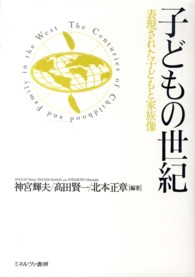Full Description
This book critically examines the historical and ongoing influence of the British Broadcasting Corporation (BBC) on African broadcasting, tracing its colonial roots through to its post-colonial legacy.
The book details how in the 1930s the BBC established radio transmitter sites in East and Central Africa, thereby positioning itself as a model for broadcasting in British colonies and beyond. Grounded in a decolonial perspective, the book then explores the evolution of African radio structures, funding models, editorial policies and programming strategies. In the post-colonial era, the BBC continued to train, equip and support African broadcasters while maintaining a strong presence through African-focused programming. Some nations fully embraced the BBC model, while others developed hybrid broadcasting systems integrating British, local and transnational influences. Beyond historical analysis, the book interrogates the BBC's enduring influence on African media, examining how contemporary local broadcasters negotiate, adapt or resist its legacy. A nuanced exploration of these dynamics provides critical insights into the intersection of colonial-era institutions and contemporary African media landscapes.
This book is an essential resource for scholars and researchers in media and communication studies, African studies and decolonial studies, offering a comprehensive understanding of the BBC's role in shaping African broadcasting.
Contents
1. Introduction: The BBC's Legacy in Africa: Continuities and Change 2. Decolonising the African Radio: Changes and Continuities in Malawi 3. BBC's Mixed Legacy in Uganda: Ownership, Programming, Training, and a Fightback 4. Torn between multiple interests: Correspondents and the BBC legacy in Africa 5. BBC Focus on Africa and the African story 6. Influence of BBC's HARDtalk on Zimbabwe's Political Interviews: A Culture of "Agonistic" Deliberations 7. "Voice of Record": The Enduring Legacy of BBC Radio in Shaping African Languages, Culture, and Politics. 8. Sports Reporting and Audience Engagement: Examining BBC Yoruba Service Sports Colloquial Headlines 9. "The Continuity of the Propinquity Effect": The BBC and broadcasting in Mozambique 10. Glimpses of BCC Broadcasting in Anglophone and Francophone Africa: The Case of Nigeria and Benin Republic 11. BBC's public media legacy and the Malawi Broadcasting Corporation 12. ZBC's BBC Model: A Failed Public Service Vision? 13. Conclusion: Decolonising the African Radio, Prospects, and Challenges








